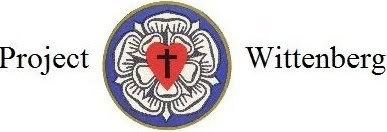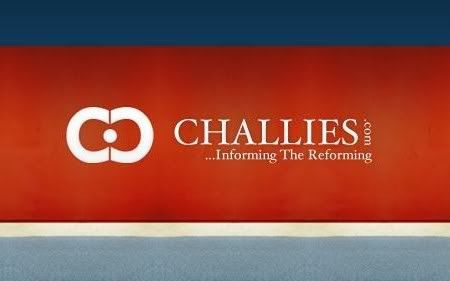 Sorry for not posting the last couple of weeks, but the arm has been very sore and I thought I'd lay off the keyboard for awhile. However, I was inspired after reading this and thought I'd post it:
Sorry for not posting the last couple of weeks, but the arm has been very sore and I thought I'd lay off the keyboard for awhile. However, I was inspired after reading this and thought I'd post it:As regards our writings, which are not a rule of faith or practice, but only a help to edification, we may suppose that they contain some things falling short of the truth in obscure and recondite matters, and that these mistakes may or may not be corrected in subsequent treatises. For we are of those of whom the apostle says: "And if ye be otherwise minded, God shall reveal even this unto you." Such writings are read with the right of judgment, and without any obligation to believe. In order to leave room for such profitable discussions of difficult questions, there is a distinct boundary line separating all productions subsequent to apostolic times from the authoritative canonical books of the Old and New Testaments. The authority of these books has come down to us from the apostles through the successions of bishops and the extension of the Church, and, from a position of lofty supremacy, claims the submission of every faithful and pious mind. If we are perplexed by an apparent contradiction in Scripture, it is not allowable to say, The author of this book is mistaken; but either the manuscript is faulty, or the translation is wrong, or you have not understood. In the innumerable books that have been written latterly we may sometimes find the same truth as in Scripture, but there is not the same authority. Scripture has a sacredness peculiar to itself. In other books the reader may form his own opinion, and perhaps, from not understanding the writer, may differ from him, and may pronounce in favor of what pleases him, or against what he dislikes. In such cases, a man is at liberty to withhold his belief, unless there is some clear demonstration or some canonical authority to show that the doctrine or statement either must or may be true. But in consequence of the distinctive peculiarity of the sacred writings, we are bound to receive as true whatever the canon shows to have been said by even one prophet, or apostle, or evangelist. Otherwise, not a single page will be left for tim guidance of human fallibility, if contempt for the wholesome authority of the canonical books either puts an end to that authority altogether, or involves it in hopeless confusion (Reply to Faustus the Manicheaen, XI, V).
Augustine is clear that the Scriptures are sufficient in determining doctrine and that one can exercise private judgment in determining its interpretation. He is careful to point out that truth is weighed by the proper exegesis of Scripture, but he recognizes even his own fallibilities and points out that his writings are just a means to edify. Compare this to those who claim that Scripture is subservient to the Church's "infallible" interpretation and not meant for anyone's private judgment.
Just thought you'd like to know...
































1 comment:
The way I read Augustine is the way I read any other Christian writer. First of all, I keep in mind that no one is infallible. Next, you glean the good things from their writings. That which is questionable you weigh with Scripture and the writings of the Christian community through history, present and past. Ultimately, it is Scripture which determines doctrine and not Augustine and, as with others, he is subject to Scripture, but I don't see anything wrong with checking in with Augustine to catch his POV.
Peace,
Ray
Post a Comment